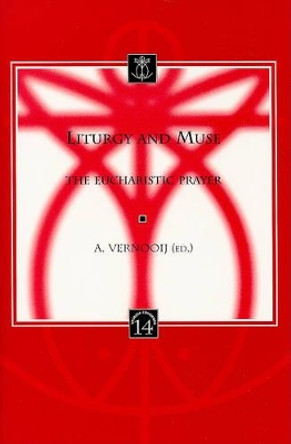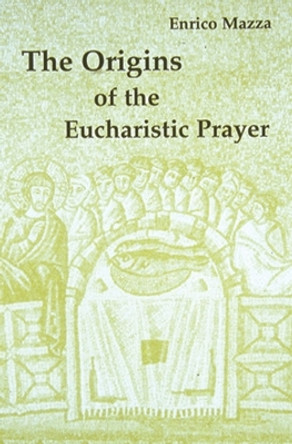Description
About the Author
Anne McGowan received a Ph.D. in Theology with a concentration in Liturgical Studies from the University of Notre Dame (2011). Her research interests include the textual and dialogical engagement of liturgical matters among various Christian traditions, East and West, ancient and modern. She spent the 2011-2012 academic year as a postdoctoral associate at the Yale Institute of Sacred Music and is currently a postdoctoral teaching scholar at the University of Notre Dame.
Reviews
Despite what the back cover suggests about the book reflecting on pneumatology and issues from justice to interfaith relations, this book actually offers precisely what its title promises: a tightly focused study of invocations of the Holy Spirit within eucharistic prayers from early Christian communities and from the twentieth century. Even if narrower than advertised, however, Anne McGowan's work addresses another profound question: she explores the way in which the past influences the present, examining the impact research into ancient liturgical texts had on those who revised eucharistic prayers from the 1960s onwards. So let us forget the marketing copy and evaluate the book for what it is. McGowan herself outlines two goals: the first as mentioned above, and the second to propose ways that more recent liturgical research might help the various Churches 'to articulate and incorporate a more expansive understanding of the connection between the Holy Spirit and the Eucharist' (p. 12). She begins with a survey of epicleses and related components within ancient eucharistic texts, intertwined with the tale of liturgical historians' evolving understanding of the genealogies of the prayers. McGowan then presents the history of modern revision, using invocations of the Holy Spirit to illuminate the theologies of Western Churches engaged in worship renewal. The last half of the book compares the multitude of epicleses in select modern denominational worship books, before concluding with a short speculative chapter. But while the aims are clear, at times the volume feels like several books in one. The first section is a painstaking comparative textual analysis of epicleses within representative eucharistic prayer types; the later examination of modern prayers offers similar detail. Chapters on the history of liturgical scholarship are more narrative, however, while the studies of modern traditions each end in theological critique. Essentially, the book functions best as a handy reference volume, potentially useful both to those interested in the history of scholarship and to those more specifically curious about liturgical revision. In this, McGowan underlines areas for further development. For example, in the last section she observes that, while the twentieth-century prayers feel exceedingly similar - thanks to ecumenical cooperation and different revisers finding inspiration in the same ancient sources - a closer investigation demonstrates that different churches nonetheless shaped liturgies congruent to their own traditions. Presenting this diversity as a strength, McGowan suggests that the way forward lies in encouraging variety within each tradition too, thus broadening overall Christian appreciation of the Holy Spirit's role (pp. 269-70). The embrace of diversity then turns beyond Western Churches towards Christianities elsewhere. Though McGowan here works exclusively with prayer texts, she acknowledges that keeping actual practice outside the work's scope means she cannot provide a complete portrayal of the lived understanding of the sacrament (pp. 21, 273). While this decision is comprehensible, given the ease of using official liturgical resources compared with the incredible plurality of devotional practice, the neglect of the embodied nature of eucharistic prayer remains a missed chance to put the discussed texts into stronger context: if the nuances of language demonstrate the difference between, say, a Roman Catholic and a Methodist prayer, then pondering particularities of practice, even if only generally, would no doubt strengthen McGowan's argument concerning diversity. Similarly, it would have helped readers if the author had explained her selection of modern denominations - as it stands, the choices seem somewhat random. McGowan sets out to demonstrate a very specific argument and to reflect theologically on her observations. The weight of detail unfortunately threatens to overwhelm the course of that argument, and makes the theological reflection seem almost an afterthought. McGowan does a good job describing how research into ancient liturgy influenced contemporary liturgical composition, but leaves unasked the theological question of why revisers thought it important to do so. By bringing so many different strands of liturgical study together, from ancient epicleses to the process of revision creating modern prayers, however, the book provides a valuable resource. -- Mark Godwin * Theology journal *
The book by Anne McGowan, which is the Alcuin Club Collection for 2014, is a must-read for anyone with a serious interest in the Eucharist. McGowan investigates and assesses the place of the Holy Spirit in the texts of Eucharistic Prayers, ancient and modern, and she proves herself to be an adept "splitter", as she unravels the evidence and demonstrates the diversity of Eucharistic faith and practice. As McGowan reminds us in a comprehensive and elegantly written introduction to the book, there can be no real worship, let alone prayer, without the presence and in-breathing of the Holy Spirit. The book is divided into two parts. Part 1 marshals research into the epiclesis (the invocation, or calling, of the Spirit), and charts how scholars handled the evidence as the agenda for liturgical revision was beginning to take shape in the Western Churches. Part 2 provides an overview of how the Eucharistic epiclesis was adopted and modified in the framing of Eucharistic Prayers in the latter part of the 20th century. These texts are the assessed in separate chapters on the Roman, Anglican and Protestant ecclesial traditions. McGowan is a sure guide through the scholarly debate on the origins of the invocation of the Spirit in Eucharistic Prayer, and her close reading of liturgical texts leads her to make well-calibrated judgements on the place of the Spirit in the prayer of the Churches of the West. An appeal is made in the conclusion of the volume to refresh and extend how we speak of the Spirit by recovering the metaphors for the Spirit in the Bible and in the writings of Christian spiritual tradition. Due attention is also given to the rich contexts of global Christianity as a register of how we may speak of the Spirit today. More, I think, could have been made here of the transformative effect on those who gather to celebrate the Eucharist in an expectant and receptive way. St John's Gospel presents the promised Spirit as the medium in which the abiding significance of Christ's words and deeds becomes present and active. Such making present is at the very heart of what is invoked, celebrated, give, and received in the Eucharist, and that is why worship truly can, and does, change lives. The gift of the Eucharist enables us to become what we are made in baptism, namely, to be Christ in and for the world. -- Anne McGowan * Church Times *
An excellent study * Anaphora *
Book Information
ISBN 9780281071555
Author Anne McGowan
Format Paperback
Page Count 256
Imprint SPCK Publishing
Publisher SPCK Publishing
Weight(grams) 394g







